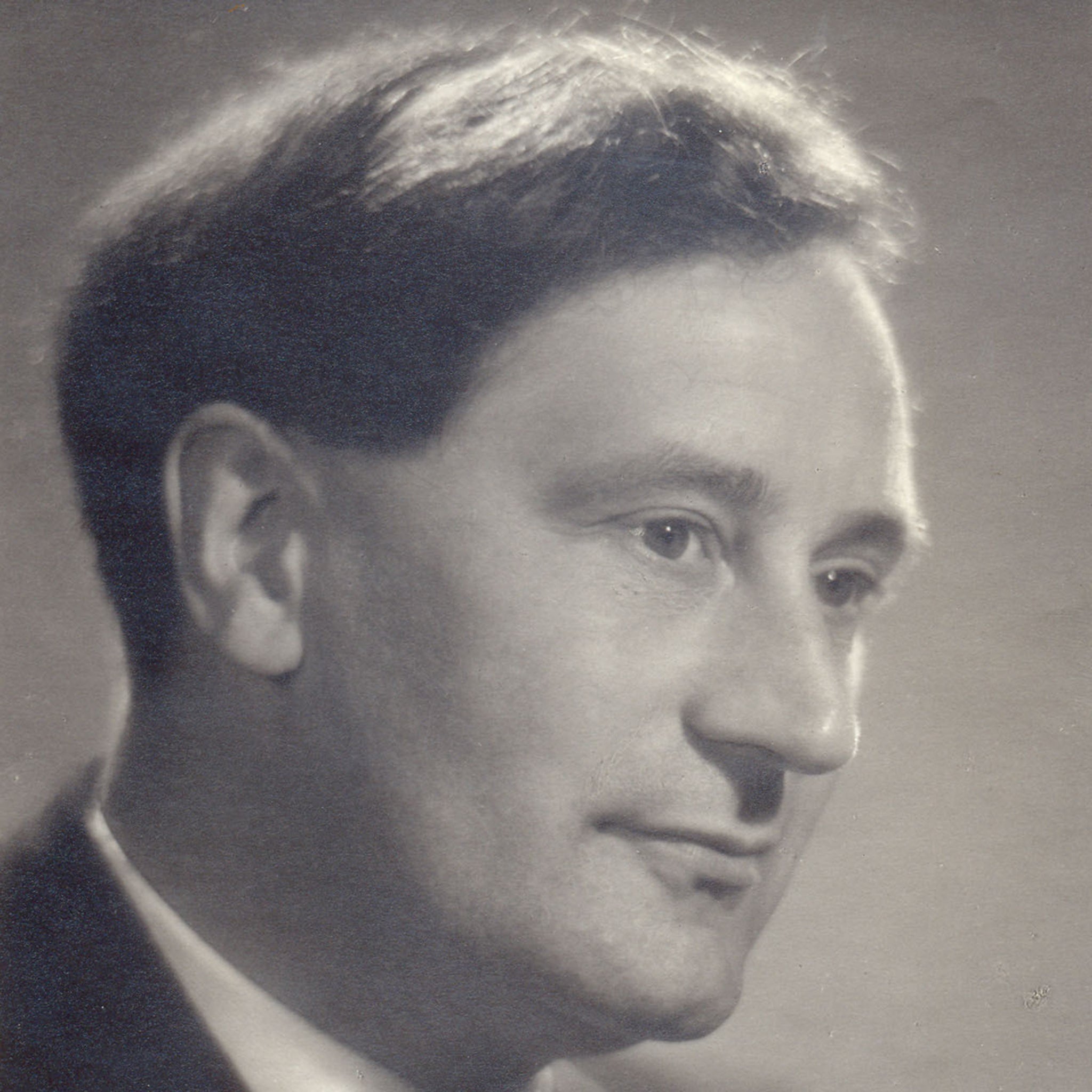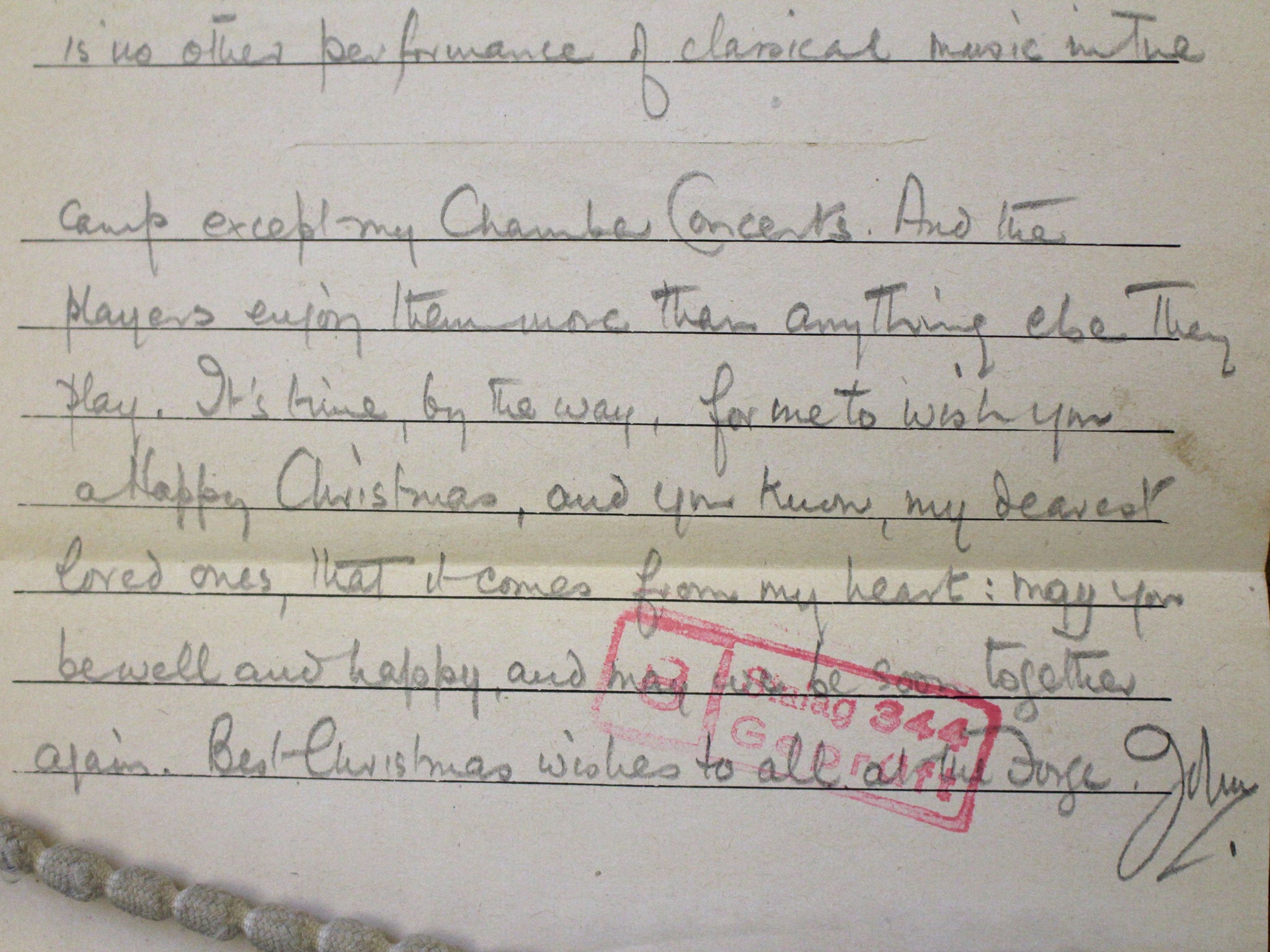World War II: Cheerful Christmas notes written by British prisoner of war John Crook revealed
John Crook was captured while serving as a private with the 9th Royal Fusiliers during the 1943 Allied landings in Italy

Cheerful Christmas notes written by a prisoner of war have revealed a rarely seen festive side to life in an infamous Stalag Luft camp in the Second World War - including carol singing and pantomimes.
John Crook, who went on to become a Cambridge University academic, was captured while serving as a private with the 9th Royal Fusiliers during the 1943 Allied landings in Italy.
He was taken to the Germans' Stalag Luft VIII-B in Poland, which became renowned for its harsh conditions, where he remained for the next two years.
Despite his plight, only-child Crook began writing reassuring letters to his parents, urging them not to worry about him.
In a letter dated December 12 1943, he recalls performances of carols, a band concert, cabaret, a pantomime and even decorating the barracks with paper chains. He urged his parents not to worry, saying he had "no time to pine away".
In another, dated December 20, he added: "So intensely busy about rehearsals and writing parts, teaching Greek, cooking gelatine-and-chips, planning a chamber music concert and acting as usual as a general confidant and receiver of everyone's troubles."

However, Eleanor Swire, a librarian at St John's College who has studied the letters, said that they are likely to mask the reality of life in camp.
His references to "very Xmassy weather - snow and ice" in fact refer to the perishing temperatures experienced by the men held by the Germans.
A letter written to his parents on Christmas Day 1944 is particularly moving, revealing that the men had organised dances and concerts and donned "their best khaki slacks" in a bid to maintain good cheer.
Ms Swire said: "It must have been very difficult to be separated from his loved ones and to have to endure the harsh conditions of a prison camp.
"When I sat down to read his letters in a quiet corner of the library, I was moved to tears by how brave he was to stay so upbeat and to put a positive spin on his circumstances in order to comfort his family."
As the Soviet army advanced in the final stages of the war in 1945, Crook, along with 80,000 other PoWs, was forced by his German captors to march west in extreme winter weather conditions.
He survived the "death march" but many of his comrades died of hunger, exhaustion and the bitter cold before they could be liberated.
After completing his time in the army, he returned to St John's and completed a classics degree in 1947. He later became a fellow of the college and a professor of ancient history. Crook died in 2007, aged 87.
The letters form part of a collection of personal items which will be published online on 21 December. The archive will be available to view at www.joh.cam.ac.uk.
PA
Join our commenting forum
Join thought-provoking conversations, follow other Independent readers and see their replies
Comments
Bookmark popover
Removed from bookmarks